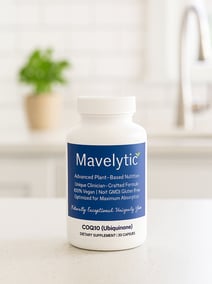Why You Need Dietary Supplements
A discussion of the different dietary supplements and why they're good for everyone.
Walk into any health store or scroll through your social feed, and you'll see it—bottles, powders, and capsules promising more energy, better sleep, clearer skin, and a sharper mind. Dietary supplements are everywhere, and they’re not going away anytime soon.
But what’s behind the hype? Are supplements just a trend, or do they actually offer real health benefits?
Let’s break it down.
Most people try to eat well. They try to get enough fruits, vegetables, lean protein, and whole grains. But let’s be honest—life gets in the way. Busy schedules, picky eaters, special diets, and stress all make it tough to get every nutrient we need from food alone.
That’s where dietary supplements come in. They help fill the gaps.
Supplements can provide essential nutrients your body may be missing. Some support general health. Others target specific needs like bone strength, energy, digestion, immunity, or skin health.
In short, supplements are not a magic fix—but they can be a smart backup plan.
Here’s a look at the most popular types of supplements and what they’re used for:
1. Multivitamins
A go-to for many people, multivitamins are daily insurance for your body. They provide a balanced dose of essential vitamins and minerals. Many are now tailored for men, women, seniors, or even athletes.
Common Benefits:
Fills nutritional gaps
Supports energy and immune function
Helps with aging, especially for older adults
2. Vitamin D
Known as the "sunshine vitamin," Vitamin D helps your body absorb calcium and keeps your bones strong. Many people, especially those who live in colder climates, are low in it.
Common Benefits:
Bone health
Mood support
Immune function
3. Probiotics
These are the “good” bacteria that live in your gut. Taking them supports digestion and can even help with skin, mood, and immunity.
Common Benefits:
Digestive balance
Fewer stomach issues
Better nutrient absorption
4. Omega-3 Fatty Acids
These healthy fats are found in fish oil and some plants like flaxseed. They’re important for heart, brain, and joint health.
Common Benefits:
Reduced inflammation
Brain support
Heart health
5. Magnesium
This mineral helps with over 300 body functions. It’s especially important for nerve, muscle, and sleep health.
Common Benefits:
Muscle relaxation
Better sleep
Stress relief
6. Plant-Based Protein Powders
Especially popular among vegans and athletes, protein powders help people meet daily protein needs without relying on meat or dairy.
Common Benefits:
Muscle repair
Satiety and weight control
Nutritional support for vegan diets
Yes—if you use them right.
Supplements work best when they’re used to support a healthy lifestyle, not replace it. Think of them as tools. They won’t do the job for you, but they can make the work easier.
Scientific studies back up many of the benefits. For example, folic acid reduces birth defect risk. Vitamin D supports immune health. Probiotics help treat certain digestive issues. These aren't guesses—they’re real, proven effects.
That said, not all supplements are created equal. Quality matters. It’s important to choose supplements that are tested, labeled correctly, and come from trustworthy sources.
Enter CoQ10: A Cellular Power Booster
One supplement that’s gaining attention lately is CoQ10—short for coenzyme Q10.
Your body actually makes this nutrient on its own. It’s found in almost every cell, especially in the heart, liver, kidneys, and pancreas. CoQ10 plays a key role in producing energy at the cellular level. Without it, your cells can’t do their job.
But as we age, our natural levels drop. Some medications, like statins (used to lower cholesterol), can also lower CoQ10 in the body.
That’s why many people are turning to CoQ10 supplements to support energy, heart health, and more.
What Are the Benefits of CoQ10?
Here are a few of the top reasons people take it:
Heart Health:
CoQ10 may help reduce blood pressure and improve heart function, especially in people with heart disease.Energy Support:
Because it’s involved in energy production, many people take it to fight fatigue or improve stamina.Brain Function:
CoQ10 supports blood flow and may help protect the brain from oxidative stress.Cellular Repair:
It works as a powerful antioxidant, protecting your cells from damage caused by free radicals.Statin Side Effect Relief:
For those on cholesterol-lowering medications, CoQ10 can reduce the muscle pain sometimes caused by statins.
Should You Try CoQ10?
If you’re over 40, dealing with fatigue, managing a heart condition, or taking statins, CoQ10 may be worth trying. It’s generally well-tolerated and safe, though you should talk to your doctor if you’re taking other medications or have chronic conditions.
There are two forms of CoQ10: ubiquinone and ubiquinol. Ubiquinol is the active form your body uses directly, and it’s often more effective—though it usually costs more.
If you’re considering CoQ10, look for a trusted brand with clear labeling. Vegan formulas are now widely available.
Get one NOW! Click Here!
Final Thoughts: Supplements as Part of Your Routine
No supplement will replace healthy eating, exercise, and sleep. But when used wisely, supplements can give you that extra edge—whether it’s more energy, a better mood, or a stronger immune system.
CoQ10 is one of those supplements that works quietly in the background, helping your cells do what they do best—keep you alive, alert, and active.
If you’re looking to build a better routine, start with the basics: a good multivitamin, probiotics for your gut, and key nutrients like Vitamin D and CoQ10 that support long-term health.
Ready to Take Control of Your Health?
Start simple. Think about what your body might need most right now. Whether it’s energy, focus, digestion, or heart health—there’s a supplement that can help.
Pick one. Stick with it. Track how you feel. You might be surprised by the results.
You only get one body. Give it the fuel it needs to perform.




